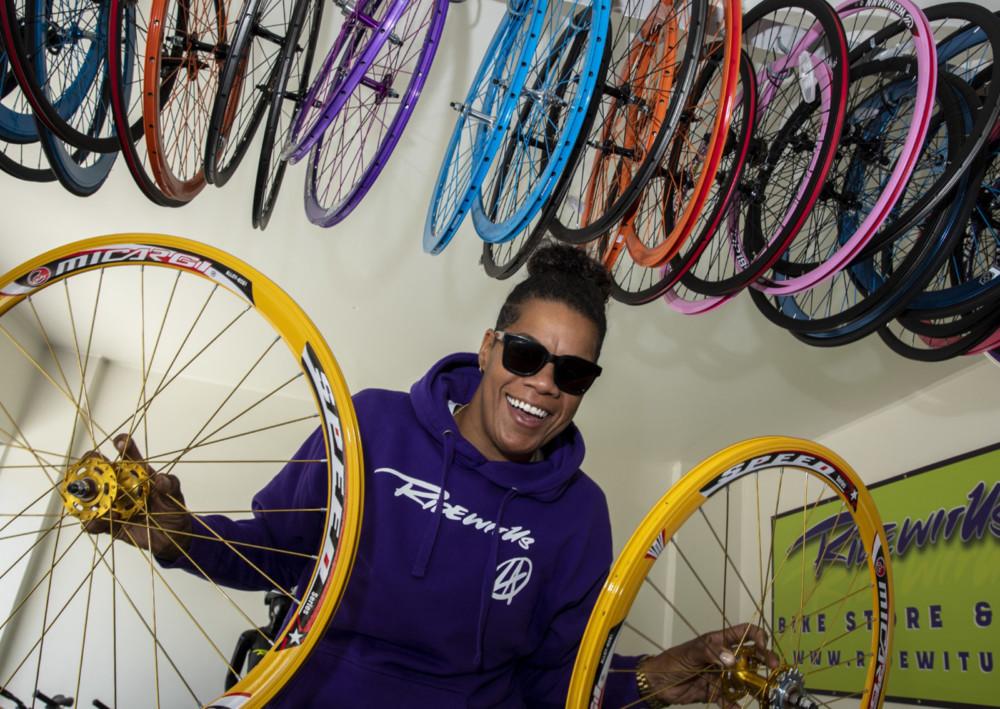By Patti Borda Mullins
The Frederick News-Post, Md.
Debt-ridden medical patients who turn to social media-based fundraisers may find help from a software program for hospitals developed by Frederick entrepreneur Paula Jagemann-Bane.
Jagemann-Bane combined her experience in for-profits and nonprofits in this latest venture, called Someone With Group.com. She has previously started and sold technology companies, and her Someone With.com cancer supplies’ company offered unique and hard-to-find post- surgery and post-chemotherapy products, particularly for breast cancer patients.
The money that this latest venture makes will come from sales of the program she developed to help hospitals spend less on debt collection and to keep more patients out of debt.
Jagemann-Bane’s past experience on Frederick Memorial Hospital’s board made her aware of patients who ran up five-figure medical bills, and of the hospital’s required charity write-offs, she said.
Nationwide, 67 percent of bankruptcies stem from medical expenses, she said, and 75 percent of those bankrupt people had health insurance.
Medicine that cures dire conditions comes at a high price that even the insured may not be able to afford, Jagemann-Bane said.
Copays and deductibles make medical care an expensive proposition, and one that comes with few options, said Clay Chase, Jagemann-Bane’s vice president of sales.
Some patients with their insurance and private assets can afford to pay for their hospital, doctors and prescriptions, and truly poor patients qualify as charity cases that hospitals treat for free.
“A number of patients will be in the in-between area,” Chase said.
Social media has already been playing a role in connecting debtors to donors, but fraudsters can also connect with unsuspecting do-gooders, who would have no way of knowing where donations go.
Jagemann-Bane’s crowdfunding program offers friends of people with high medical expenses — and the limitless friends of friends — confidence that their gifts go to legitimate needs.
All those Facebook friends and Twitter followers will have a source to check at the hospital.
“It gets verified that you know that patient is really a patient,” Chase said.
Jagemann-Bane’s Someone With Group offers hospital’s their own tailored program of crowdfunding software and registration forms that offer legitimacy to the case and the cause. She aimed to have the program in 100 hospitals by 2020, and as of Thursday, 199 hospitals are considering her proposals, she said.
“A lot of the religious nonprofit organizations have reached out to embrace this,” Chase said, because “people with a religious mission really do want to help people as much as possible,” and do not want to put people in the collection process.
Someone With’s catchy ad pitch goes like this: Fraud Resistant. Restricted Spending. Branded for Your Hospital.
The PinnacleHealth Group’s Harrisburg Hospital in Harrisburg, Pennsylvania, has bought into Jagemann-Bane’s program, with an aim to shrink the hospital’s uncollected debts and help patients pay for the healthcare that is not covered by even the best insurance policies, according to Kelly McCall, public relations coordinator for PinnacleHealth.
“Medical debt remains a big and maybe growing problem for many,” she wrote in an email. “Much of it results from the increasing out-of-pocket costs faced by most people with health insurance.”
A hospital that uses the program will register patients whose conditions and financial needs are verified. In Harrisburg’s program, registered patients receive a Hope (Helping Others Pay Expenses) debit card.
“Donors can be assured that the recipient’s medical needs are real, and the money goes toward qualified medical expenses only,” McCall wrote.
PinnacleHealth gives free charity care to people who qualify because they fall well below the federal poverty level, and offers discounted care and payment plans to others who lack insurance or means of paying.
“The Hope Card is for people who don’t qualify for free care and, although receiving discounted care, are still struggling to pay their medical bills,” McCall wrote. “Since the launch of the Hope Card, we’ve seen the bulk of the help comes from family, friends and co-workers.”
Someone With Group charges the hospital upfront for the branding, and charges them annually to maintain the site. When someone makes a donation, there is a 7.5 percent service charge, Chase said.
Thursday, Jagemann-Bane anticipates that the company will be open to investors through a public offering option created this year by the Securities and Exchange Commission for smaller startup businesses and investors with fewer assets.
“This will make history,” Jagemann-Bane said of the opportunities open to investors in smaller companies. “It’s a humongous, wonderful change.”
Chase is sending the crowdfunding information to hundreds of hospitals, and sees prospective customers in the nation’s approximately 5,000 hospitals.
“The sky’s the limit,” Chase said. “At the end of the day, it’s a win win win for everybody.”

















































































































































































































































































































































































